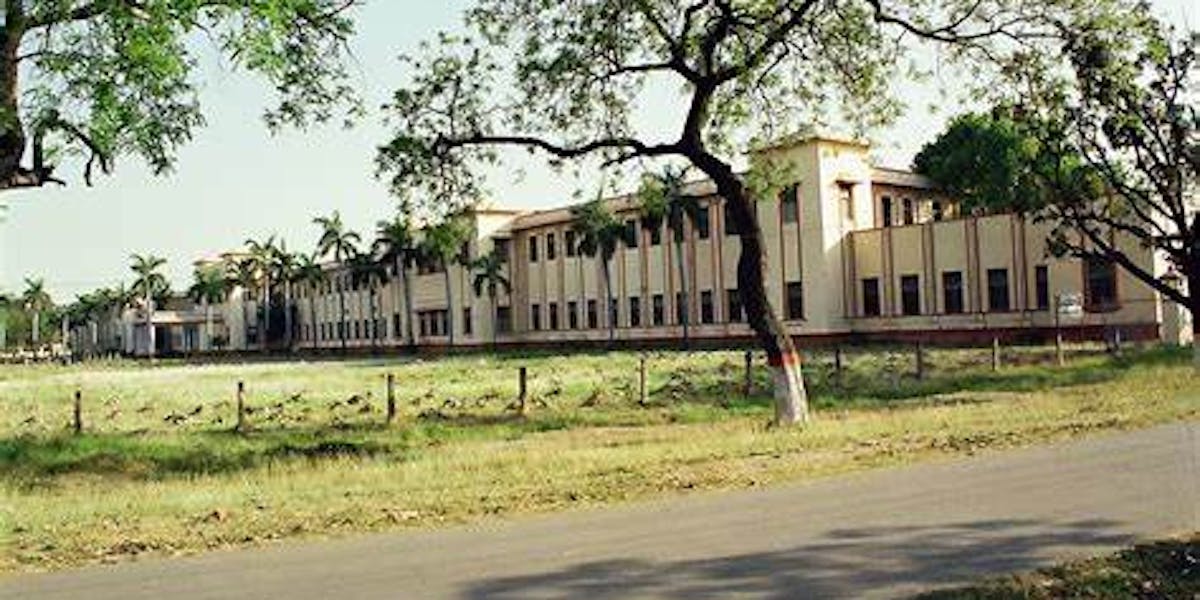
Summer Research Fellowship Programme Banaras Hindu University – Sivaraj K.

As a part of the series tete-a-tete with the Interns, we are covering the experiences of several students who have completed their Internships in various Industries and Research Institutes. If you are interested in contributing a piece, please feel free to get in touch with us.
Mail us at sjcgct@gmail.com
Tell us about yourself?
I am Sivaraj K. of Final Year IBT. My native is Namakkal. I did my schooling at Vivekananda Matriculation Higher Secondary School, Namakkal. While studying my higher Secondary education, I was very much interested in biology. Being interested in Biology, I took Industrial Biotechnology at GCT.
In which field your research interest lies in?
My research interest lies in the area of Microbiology. Resistance to the antimicrobial agents is significant in the field of Clinical Research and farming industry globally. I am interested in controlling and treating the spread of antibiotic resistant microbes.
What are the sources you kept yourself connected with to know about IAS internship and other Internships in general?
My friends coaxed me to apply for internship programmes. Teachers and seniors in my department were so instrumental in helping and kept me regularly updated.
Could you briefly explain us the procedure to apply for an internship in IAS?
The procedure for applying is so simple. A proposal for the internship in the area of interest must be kept ready prior applying. The names of six guides in our area of research interest must be well analysed. The application is available online. The application has to be submitted online and a registration number will be provided. Hard copy of this application was taken and this was accompanied with two letters of recommendation from faculty members. This was sent to Indian Institute of Sciences address provided in the website.
What is the selection process for the internship?
The selection for the internship is based on the field of interest, suggested idea and a good resume in the field. The selection will also be based on the standard of the recommendation letter.
What are the qualities that you think you possessed for qualifying for an internship in IAS?
The training programmes that I completed prior to this internship program in the field of microbiology provided me an extra credit. The suggested idea was so innovative and had its application in near future.
What are the qualities that universities look for in someone to select him/her for an internship?
The universities look for more efficient and dedicated student towards research. The qualities suggested in the recommendation letters also play an important role.
Any common mistakes which you feel students should avoid while searching and applying for internships?
The mistake that students do is while selecting the guides. They should be aware of the present research in that department. The adaptability of the student at that place must be analysed prior selecting guides.
Could you please make us aware with what research project you carried out during your internship period and its purpose?
The research project that I carried out at Banaras Hindu University, Varanasi was in the department of mycology and plant pathology. This has its greater application in the field of agriculture. My project was to study the bio-fertilizer and bio-control potential of Trichoderma isolates from soil. The treatment of rice seed with Trichoderma sp. was done and the effects were analysed.
What are applications of your project in near future and your work in it?
The applications of my project in the field of agriculture is high. The Trichoderma sp. can be used as an effective bio-control and bio-fertilizer agent for the crops.
Did you receive enough support and guidance? How was it helpful to you?
Yes I received required support and guidance through the project. The accommodation was also arranged and supported by the Institution. The stipend provided by IAS was more than sufficient to satisfy the needs there.
Did you do any preparations on the project before attending the internship? Is that important?
Yes, I did some preparations prior to the project. I referred many journals related to Trichoderma and its benefits in agriculture.
What were the differences in work culture and atmosphere you experienced in GCT and over there?
Banaras Hindu University was well equipped with all the facilities, sterile and maintained well. The campus provided supportive environment for research.
How this internship period has helped you to improve your technical skills and capabilities?
I was able to learn good laboratory practices and a new field of research was exposed to me. I was happy to handle latest technological instruments and their significance in modern research. The research scholars over there helped me a lot to plan the research work and to analyse the results clearly.
In what way doing internship projects under your own under graduation stream/course will help you?
These internship programs will help us in planning our final year projects. They also make our basics strong and create a strong motivation towards research. It provides an opportunity to interact with the eminent scientists and gather their contacts and references.
What will be your advice and suggestions for your juniors who will be attending such internships in future?
Young students with agility towards research are advised to take up internship programmes like these to enhance their knowledge and experience. Students can have this internship programme as a base for their research career and future endeavours.
DISCLAIMER: The opinions or views expressed are views of the individual writers and not of the institution. All forms of content published in this website and Student Journalist Council - GCT's social media handles are strictly properties of Student Journalist Council - GCT and are works of the various teams of the respective academic years.
No article, story or any form of content produced by Student Journalist Council - GCT is meant to be reproduced or distributed, either in parts or whole, without prior permission from Student Journalist Council - GCT for any purposes.

